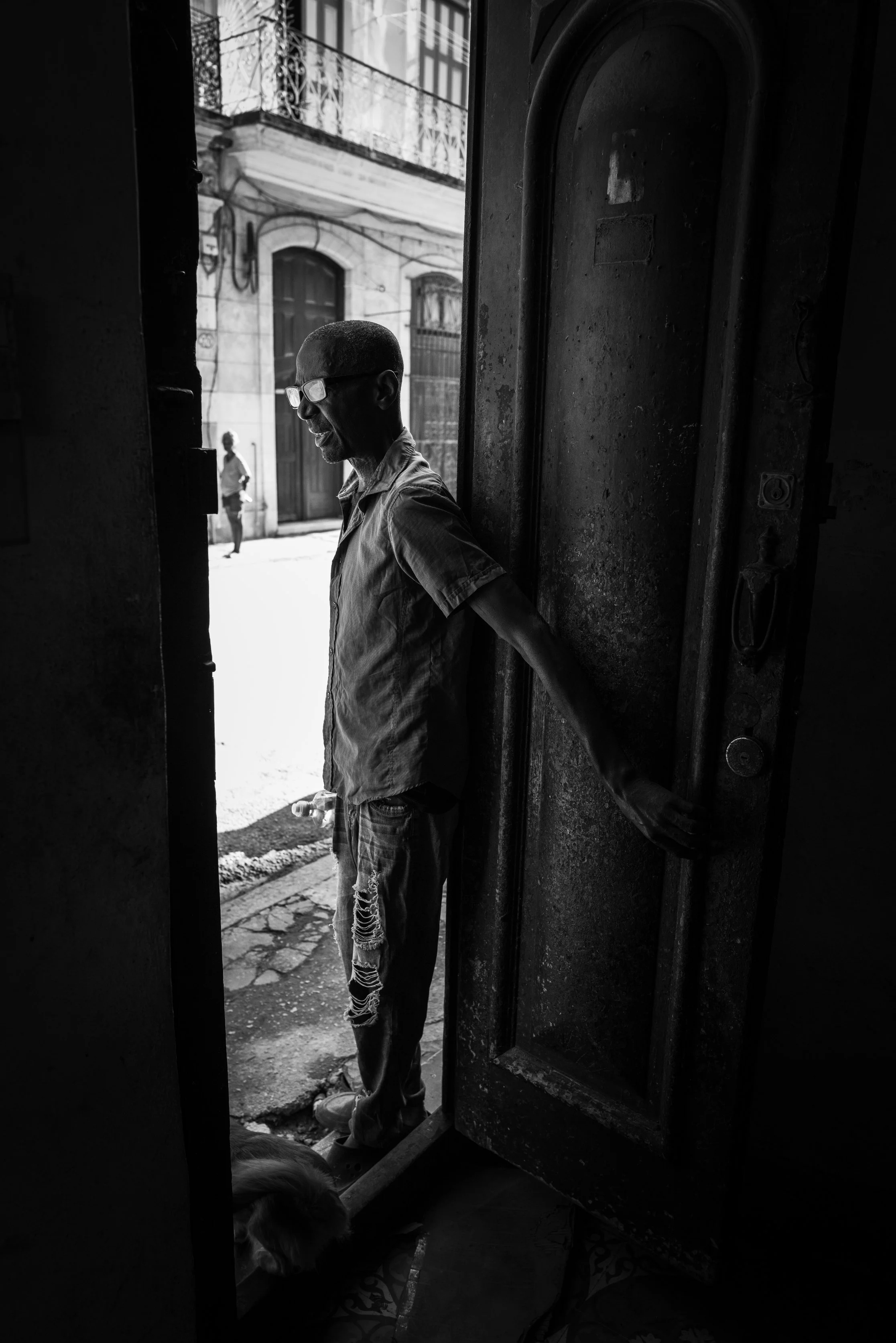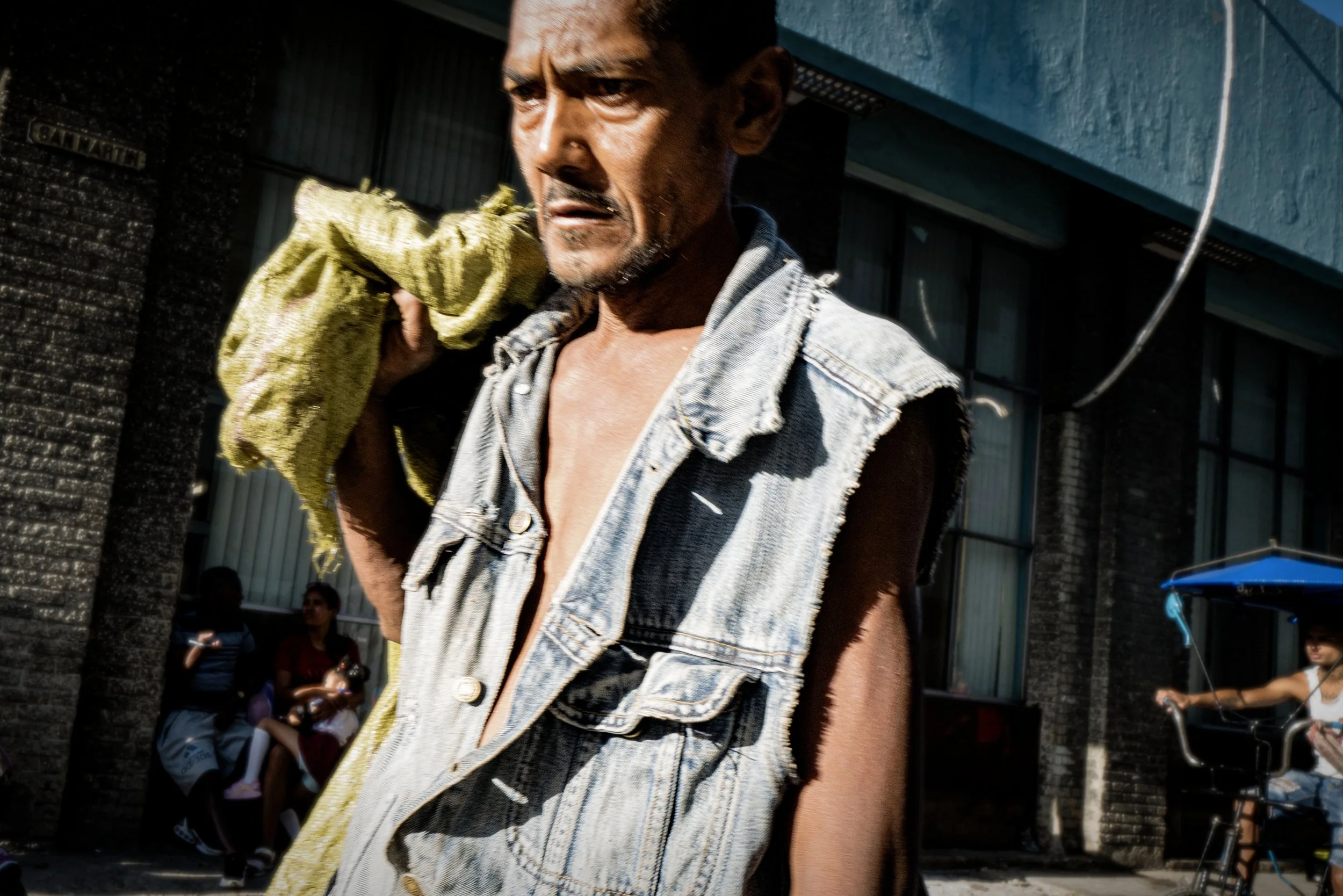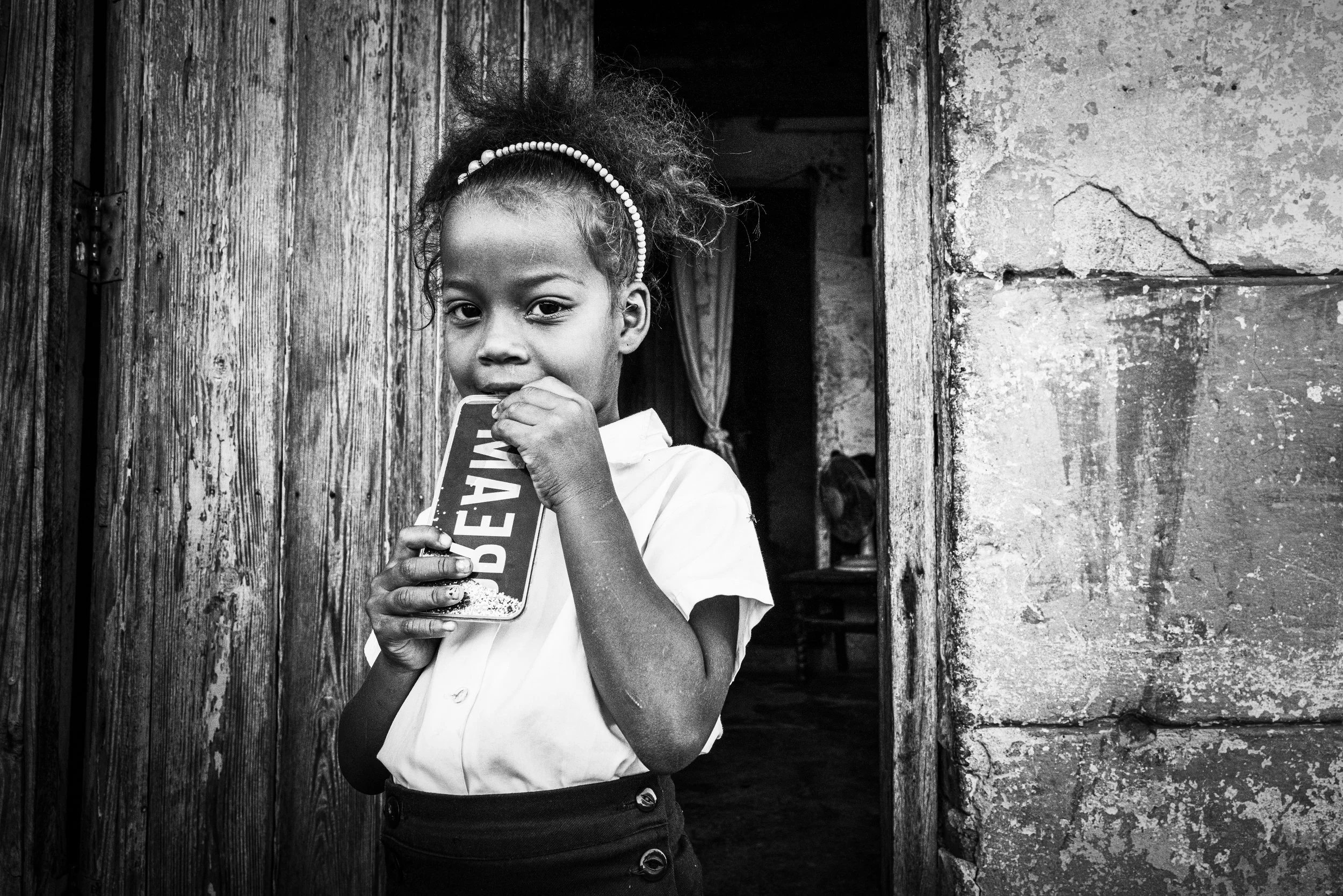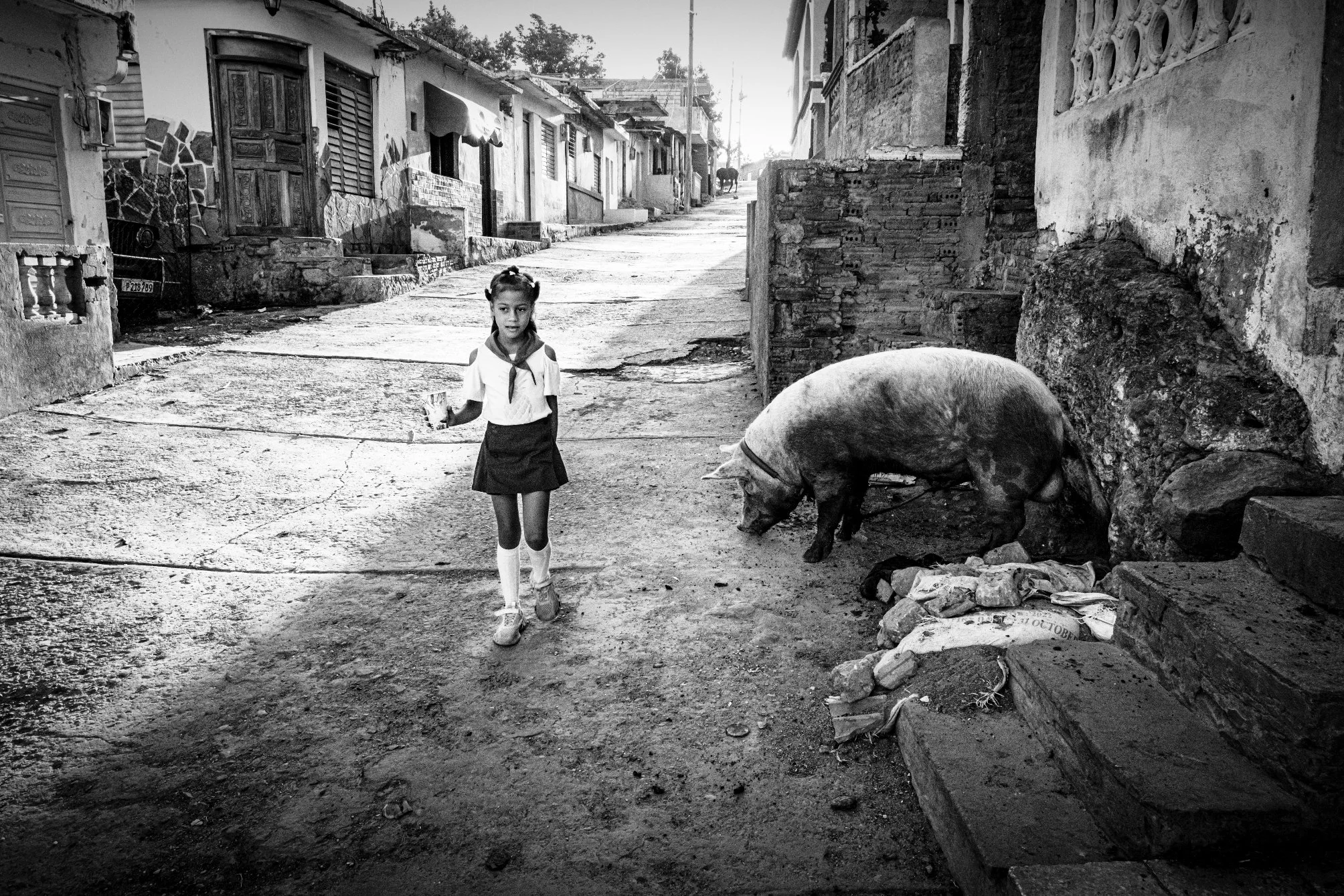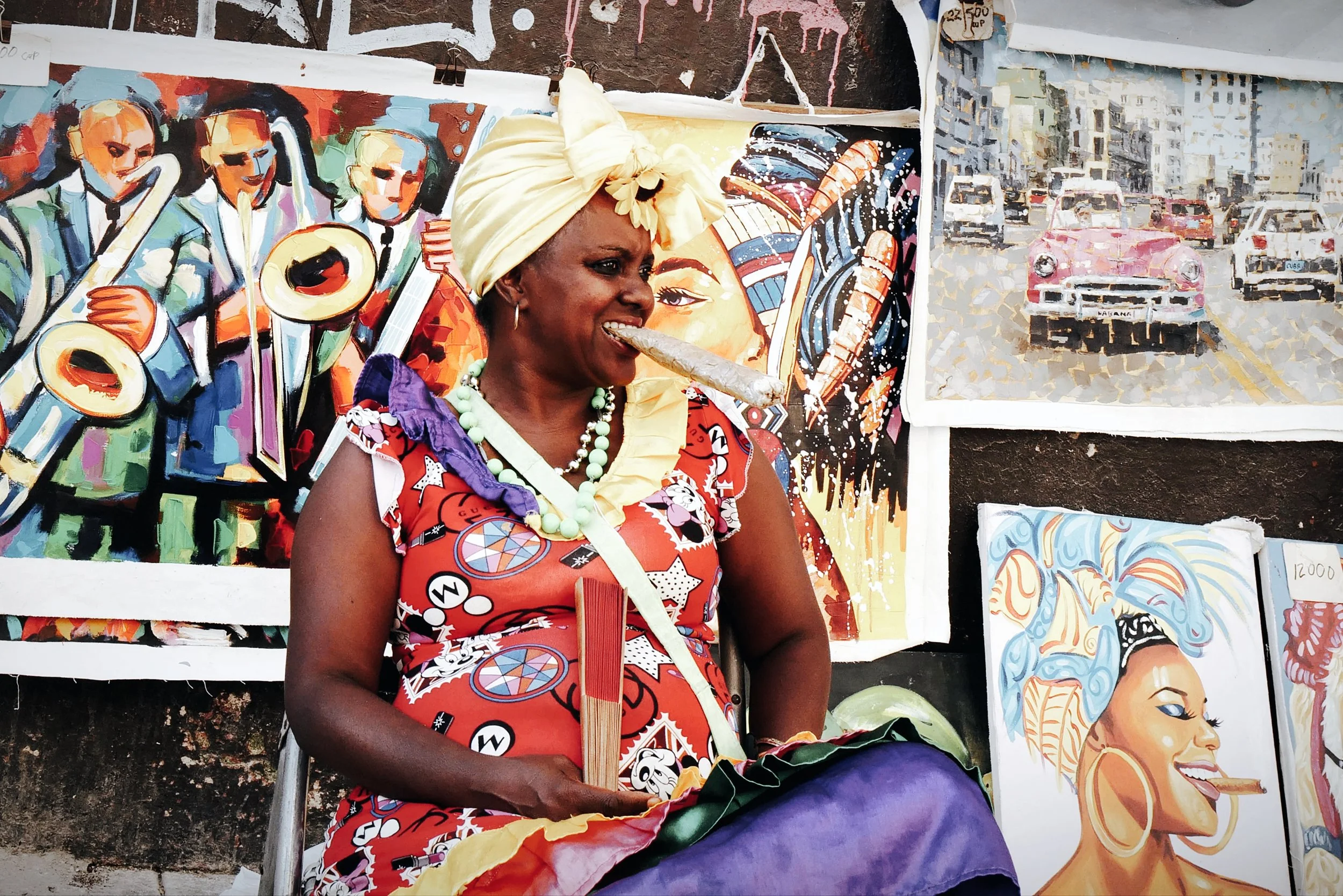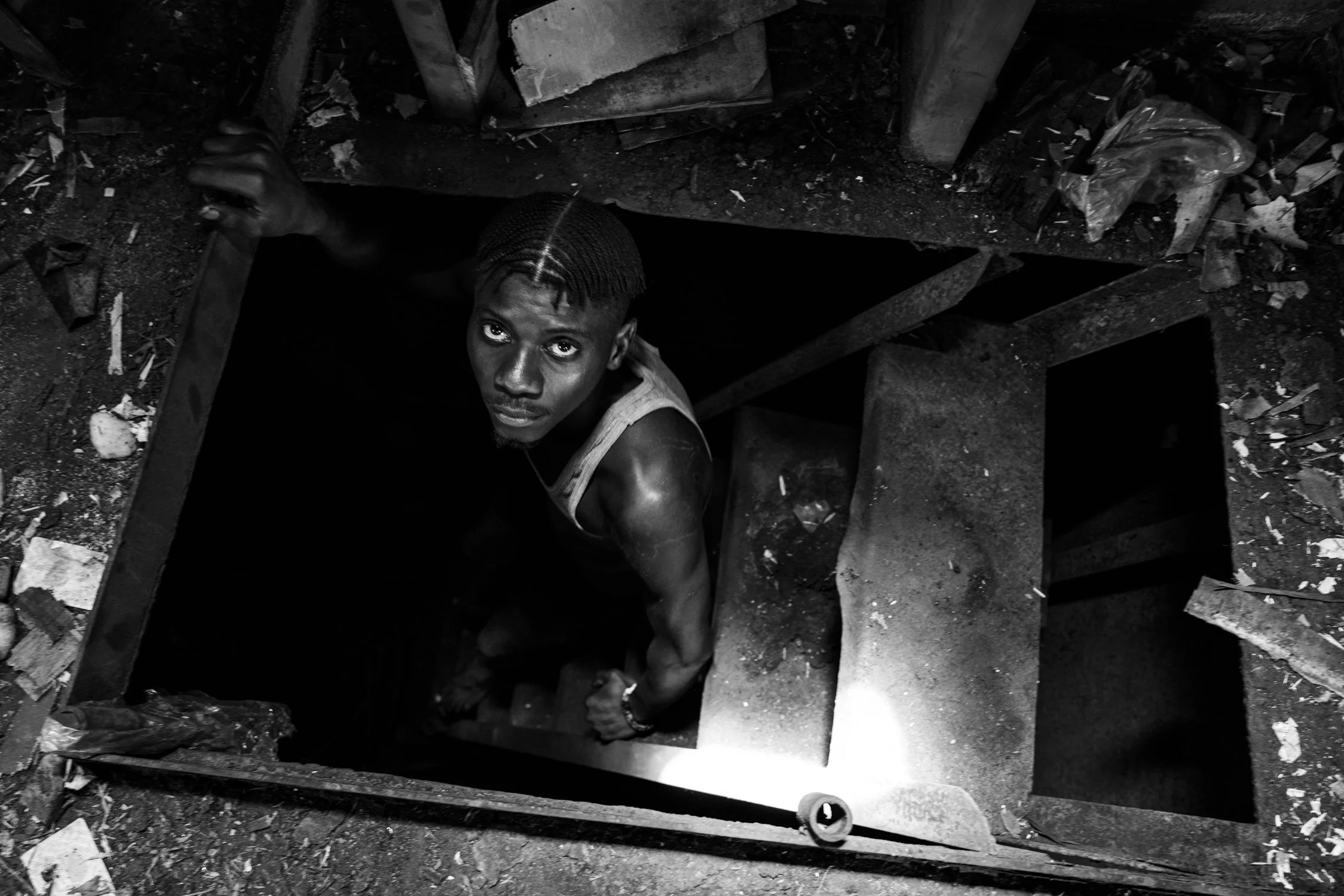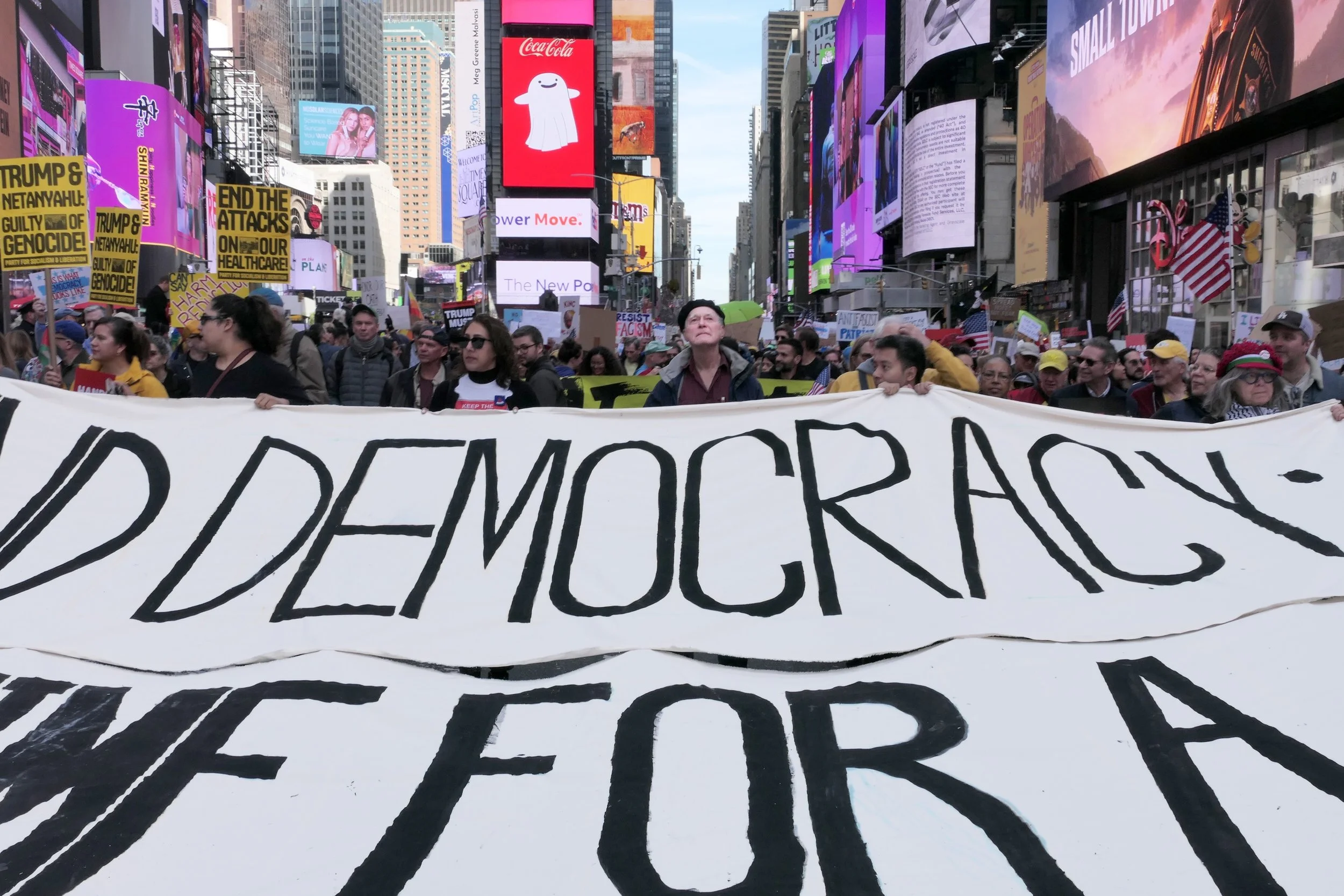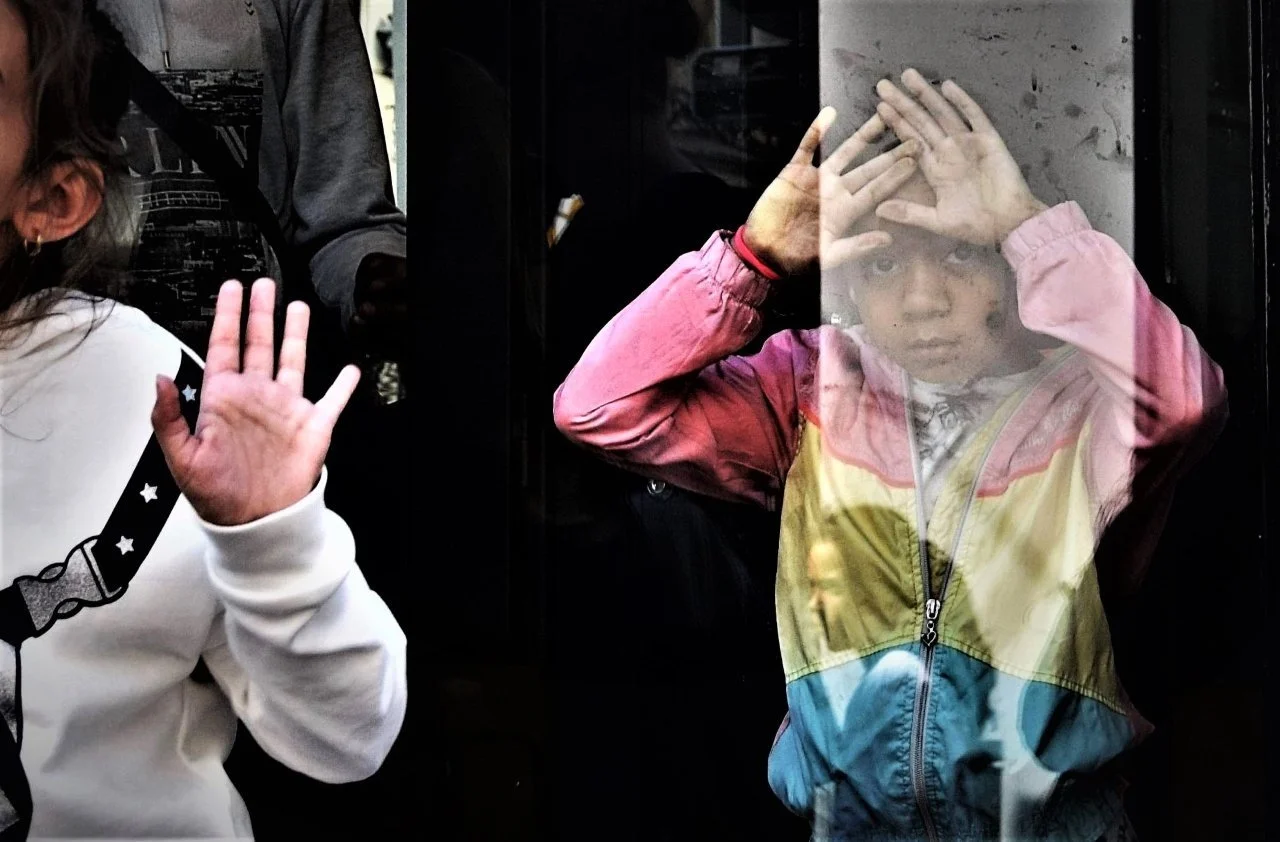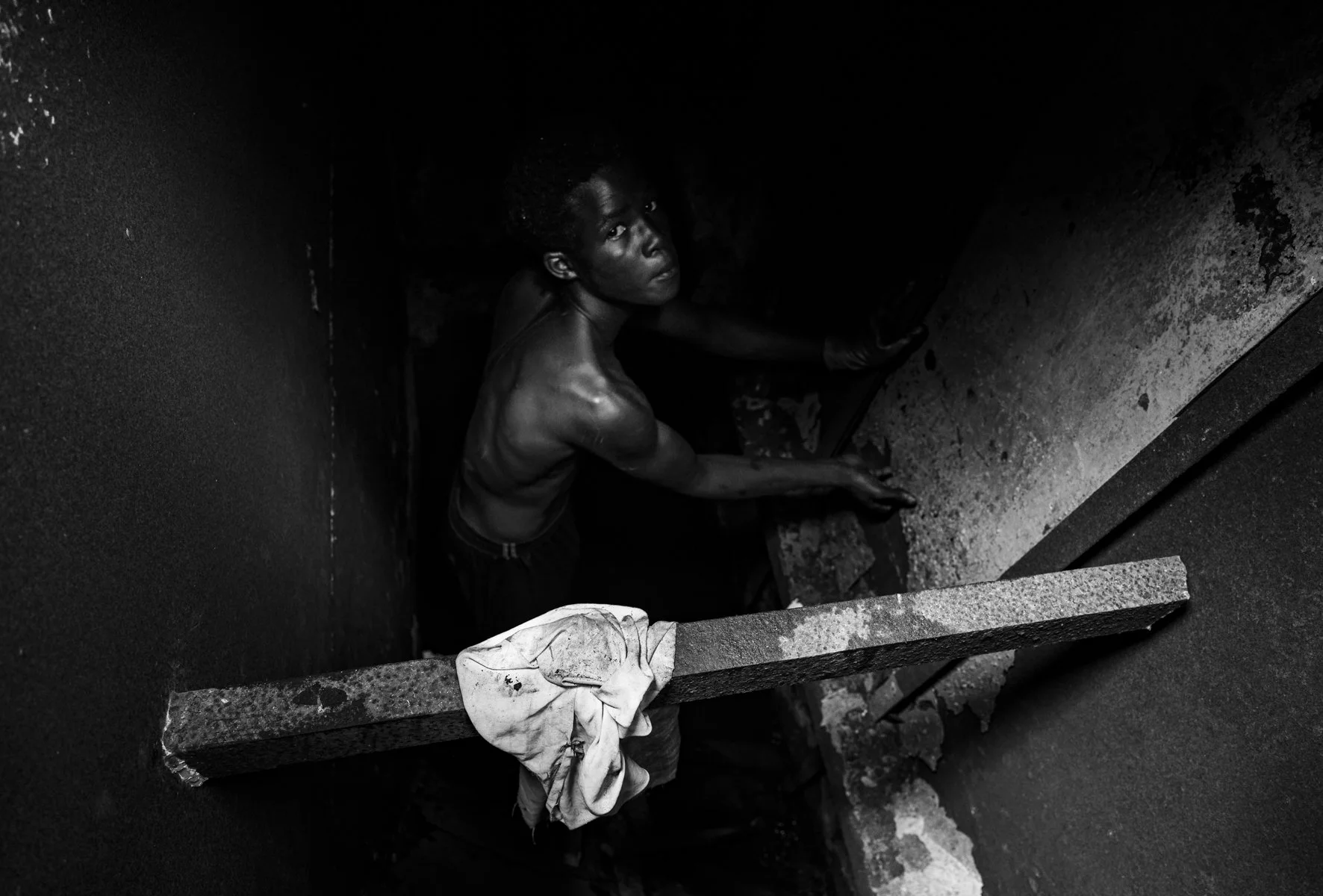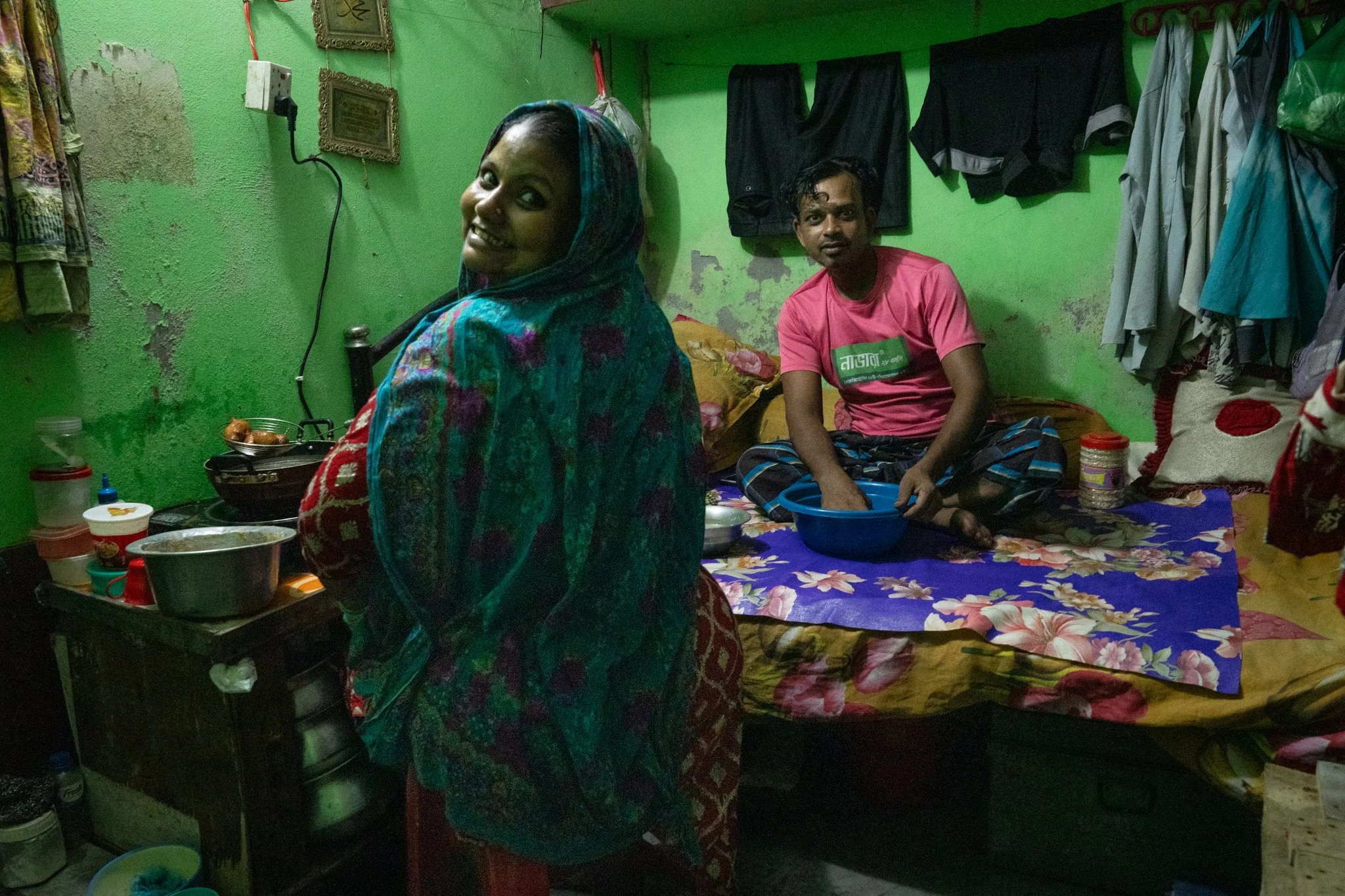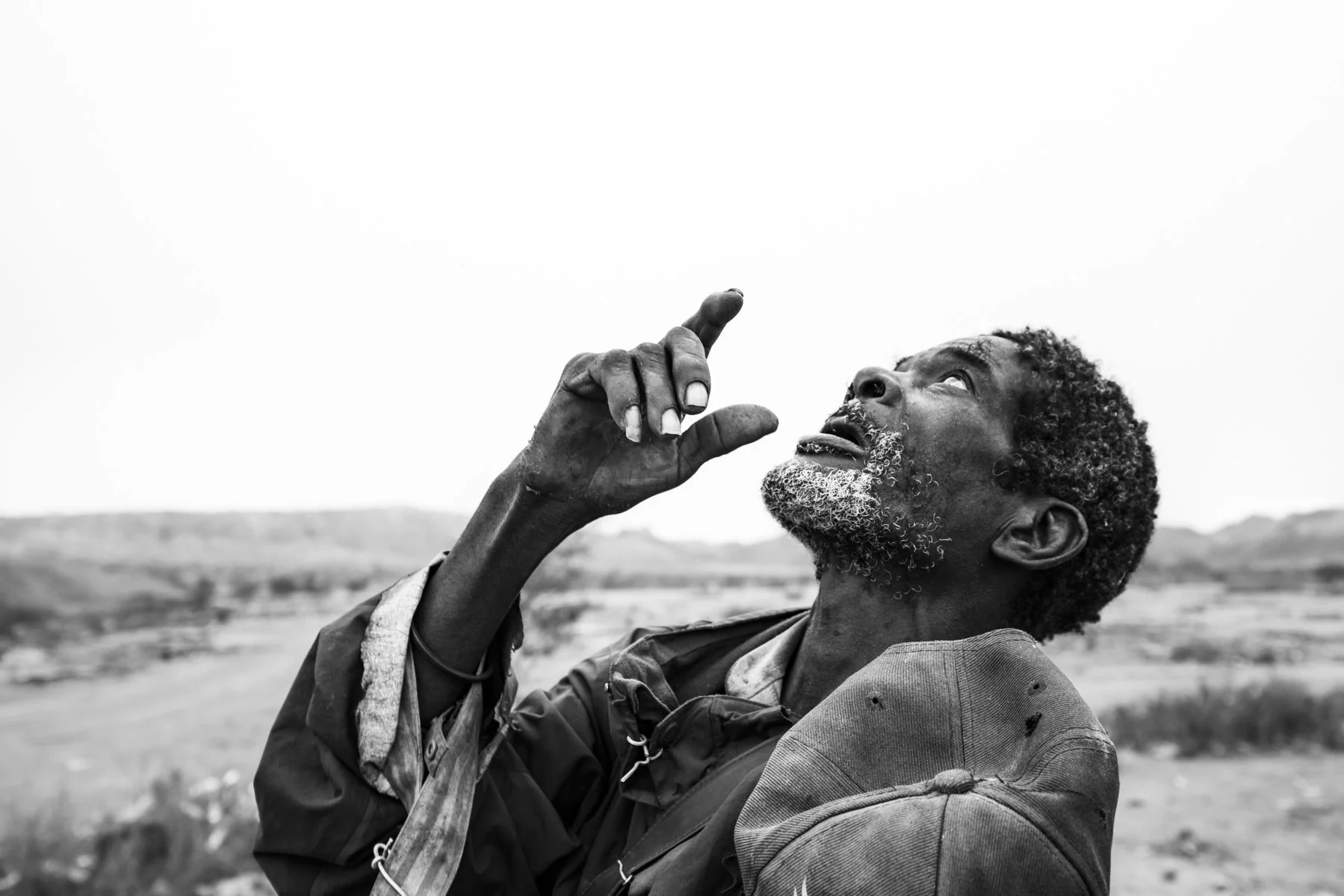Cuban diaries - a homage to ordinary Cuban people by Ludovit Graus
Whole gallery at the end of the article
I visited Cuba as a youngster 20 years ago. It took my heart, cinematic nature, architecture, cigars, a revolutionary nostalgic mood, delightful rum, and wonderful, heart-warming, happy people. People were not rich but more or less stabilised, having everything needed for regular life. I promised myself to come back. As time passed, I got married, divorced, married again, and have two wonderful kids and a wife. Finally, this year came when I could travel to Cuba, so I decided to take my family with me to see this wonderful country. We watched many documents to refresh our memories, documentaries about history to understand the past, helping us understand the present and to warm up for the journey. I found many reviews stating the situation is terrible, travelling is complicated, and even electricity is regularly switched off, etc. Anyway, usually, what is a discomfort or a deal breaker for many people is okay for me as a traveller and photographer. I learnt during my journeys that there are only two categories of people: the good and the bad. It doesn’t matter whether they are poor or rich, it doesn't matter the colour of their skin, gender, age, etc.. Poor people are usually more open and generous if you show respect and heart.
So, we booked 8 days in Havana and out of these days double trips to the country - Vinales, Bay of Pigs and Trinidad, and the rest of the few days in touristic classics in Varadero. It is well known that there are Varadero and the rest of Cuba, two absolutely different worlds.
What we saw was very, very sad, tearing my heart. I will try to tell the story through one day in Havana with Juan Carlos, whose name evokes guys from a telenovela, but in this case, a very bitter telenovela. It is a true story of one regular Cuban, which is currently the situation of most ordinary Cubans.
I met Juan Carlos by accident. Early morning, I asked the taxi driver to drive me from the hotel in Miramar to Havana city. I just asked him, in a moment passing Malecon, to stop, and I immersed myself in the city, just wandering as I used to do with my camera. Monday morning, as it should be, still a bit dark, people walking on the streets, getting out of houses, some sleepy, some fresh, some kids in school uniforms, sellers of bread shouting loudly. What disturbed me was so much garbage everywhere at the corners of the streets, and as it started to lighten up, the faces of many people. Many of them had worrying expressions, were sad, lonely, anxious, and skinny. In total contrast to what I remember from 20 years ago, most of them were smily, shiny, happy, lively. In the morning, there are many doors open where people sell coffee for locals, so I stopped by to enjoy strong rustic coffee. Surprisingly, some of them warned me to be more cautious with my camera and phone while walking around, even though I’m not the guy with a hanging opulent cannon on my neck, just having a small, unassuming camera to avoid triggering unnecessary attention. That surprised me, while Cuba is known as a very safe country. But, as one coffee lady explained to me, “desperate people do desperate things”.
So, I continued my morning journey, more cautious but with open eyes to absorb genius loci. The sun was getting up, lighting up all the sad views. I spotted in many garbage piles people looking for food, not the usual beggars (as we see in Europe), but ordinary people also. Behind one of these piles on the other side of the street, I noticed a big group of people standing in front of something, waiting for something…It was a bank, and people were waiting to get their pensions or salaries. I was astonished, young, old, invalids, mothers with children, all waiting for hours to get in and get a few bucks, in this case pesos.
(to be continued)
a pile of garbage and people in front of the bank behind it.
While staring at the situation, a skinny man with broken glasses approached me and spoke to me in a hoarse voice and brilliant English: “Sir, are you a photographer? It has been a long time since I last saw the photographer in this area. Can you do me a favour and document what we (Cubans) are facing in daily life, it is necessary that people outside here know what is going on here and how people suffer. I do not have anything to lose; this situation is so bad that I will die in a couple of months, and they can not hurt me more than this. I’m Juan Carlos. ”
Juan Carlos was a tourist guide for 34 years, currently unemployed, having throat cancer in the last stage, waiting in front of the bank with his almost blind stepfather from 4 a.m. to get his pension. At the end, it was a useless effort; the bank clerk sent them home with an illusion of a problem with his ID, which was tens of years old, last month OK for them, but this time not.
After many years of embargo and a utopian political and economic model, the country is on the verge of total collapse. For ordinary people, there is a lack of all basic elements: food, medicines, health care, potable water, except in Havana and Varadero. In the whole country, electricity is available for just a few hours per day. Basic salary of ordinary Cubans is a joke compared to the prices of food, medicines, gas, etc. We met a woman working in the hospital’s laboratory earning 15 USD per month, a diploma-qualified physiotherapist 25 USD, whilst 1 litre of fuel costs 1,1 USD, a bottle of water 1 USD, a can of corn 2,5 USD, etc. So, normal living is almost impossible due to normal official work. The government is trying to mitigate the situation as we faced after WWII in Europe through a food feeding system based on bills giving people some poor quality food. But it's absolutely not sufficient; many people are starving or semi-starving, and the lack of medicines is striking.
We walked with Juan Carlos with his almost blind father-in-law, keeping his hand on his shoulder, to their house in Old Havana. We walked by a pharmacy where tens of people were impatiently waiting from very early morning to be the first when it would be open because what would arrive would be immediately sold out and the rest of the day there would be nothing to get in there. The material lack of everything is becoming critical in their livelihood, also. Juan Carlos guided me in the house, “Come in, I would like to show you everything, there is nothing to be ashamed of or to hide. This is as it is, we have to live it.” Photos will say more than the words… Most of the houses are in a stage which, according to our standards, requires immediate evacuation of people and demolition.
Despite all of these circumstances, it is amazing that they are still able to make their clothes tidy and shiny and adhere to this. We saw it everywhere in Cuba we were, not just in Havana but in rural Vinales, Trinidad, etc. I understood from Juan Carlos that it is very important to keep people's dignity, especially in such rude conditions.
Then he walked me through regular Havana, out of tourist places, where the ordinary people live. Surprisingly for me, Havana has its own Chinatown. I asked him to be my guest. He asked me if we could stop by a kind of confectionery to buy some cakes for him and his family. He said: "We did not have such a thing for more than 3 years”. Usually, we eat some junk food every other day. The joy he had when eating every bite with coffee was absolute. I did not take a photo.
We had a long discussion about what had happened to his country and how it is now. It is just sad and bad.
I do not want to make a political analysis in here about who “helped this situation more”, Cubans or Americans, there is no unique truth after a long, complicated history. The fall is slow and lasts many years. The situation became worse after Fidel’s death, and COVID was one of the last bullets to the fragile economy. After Fidel’s death, a group of politicians hiding behind well-known revolutionary ideas but in fact care just about themselves without any control, and the rest of the country is starving. Still controls a huge military and police system. In case there are more than 10 people getting together and want to manifest in a peaceful way, they are arrested within hours and get at least 8 years in jail…absolutely absurd. Any political opposition is immediately eradicated, and people are scared, even though there are some initiatives to free the small business system. The situation with food and energy shortage is even more visible in rural areas, where not only people but also home animals are starving. It is a really heartbreaking view of the skinny horses, dogs, goats, etc. In total contrast are areas such as Miramar in Havana where governing group people live, riding new cars, instead of 60 years old American or Eastern Europe socialism cars, having unique shops where you can buy almost everything if you have money, which as mentioned you can not reach in any case from official sources.
I asked him how people could survive it, and no other revolution was coming. “They are tightening the ties slowly. It's similar to the frog put into the pot. If you put her into hot water, she will jump out immediately. If you put her into a pot with cold water and you heat it up slowly, she will remain until cooked. That's how it is with us.”
For most people, there is no future, and disillusionment is everywhere. The long-lasting shortage of everything is critical, and there is no light at the end of the tunnel in current circumstances. I faced many situations where people were not asking me for money but for medicines.
I tried in this very short time to catch the essence of the situation, which is mainly seen in the people. Despite all of the unprecedented situations in which the Cuban people live, they still preserve their dignity and grace. But the look in their eyes is not as it used to be, with a lot of happiness and fun.
I believe that one day, this wonderful country's light will switch on again, and it will utilise its huge natural and human potential for the good people who live there.
In the end, Juan Carlos asked me if I could make a video of him and his message for the people outside Cuba and for the people of Cuba. Here is his message:
Currently, we are arranging for good people from Slovakia and the Czech Republic living in Havana to bring pain killers and cancer-fighting medicines to Juan Carlos by a non-standard postal route. Hopefully, we will succeed. This is usually unpacked by bureaucrats at the Cuban customs office, and many times disappears or comes uncompleted… We cannot save the world, but I learnt here: even small help is help and is important.
Some volunteer agencies and charities efficiently help the people of Cuba; here is the link Cuba/Children donation. A few euros can help someone live for a few days or buy essential medicines.
If you visit this wonderful struggling country for a holiday, pack as many pain killers, antibiotics, and whatever medicines as possible, it will be highly appreciated by the people wherever you go. If you have a holiday in Varadero and see locals coming to the beach selling fruits, cigars, etc., please be generous, 10 euros (nothing for us) can help them to have food for their families for a couple of days. They are not smugglers from some mafia gang, just ordinary people trying to survive.
"Against all odds and extreme situations, they remain beautiful in souls with wide open hearts with their grace and dignity".
The whole gallery at the end of the article
Juan Carlos




Born in 1977, he lives in a small village in central Slovakia. Self-taught, he has participated in several workshops with photographers such as Ernestine Ruben and Ovidiu Selaru. He started shooting in 2000 in old-school analogue, and a year ago he realised his dream together with the Leica Q system user group.






























